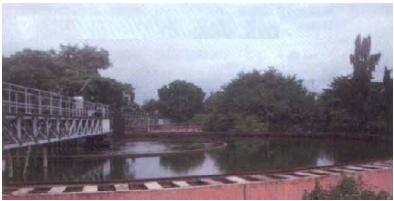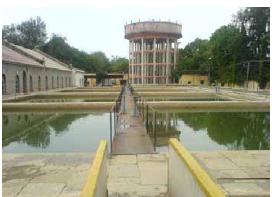The goal of safe and affordable drinking water and sanitation has not yet been achieved. The current practices of water purification are inadequate to produce secured water supply. Maintaining health protection at water supply systems has become more challenging with resistance of some pathogens to disinfection using chlorination and an increase in the immuno-compromised population (e.g., people with HIV, organ transplant patients, the elderly).
In this context, it has become essential to develop various tools such as Composite Correction Programme (CCP) and Water Safety Plans (WSP) to improve water purification and distribution systems, to achieve the goal of providing safe drinking water.
CCP is a water treatment plant optimization program that improves water treatment operation, with limited capital investment by optimizing particle removal from water treatment plants. With the application of achieving proper particle removal by improving water treatment processes, these pathogens can be removed and safe drinking water for citizens can be ensured.
The approach of CCP is based on diagnostic methods for effective use of the available water treatment processes to minimize particles (turbidity) to the finished water. Specific performance goals are used by the CCP approach to define optimum performance for key treatment processes. On the other hand, Water Safety Plans (WSPs) have a wider approach to protect and provide safe drinking water.
 Under this study programme, it was decided to carry out the CCP in water treatment plants at three different cities with varying systems of treatment plants operations.
Under this study programme, it was decided to carry out the CCP in water treatment plants at three different cities with varying systems of treatment plants operations.
The three cities selected were Hyderabad, Pune and Delhi. The criteria for the selection of the three cities were based on the willingness of the respective water supply agencies to undertake and support the CCP activity, logistics and infrastructure availability for carrying out the theoretical and practical activities in the treatment plant, ease of any temporary modification necessitated by the activity; and in view of their willingness to implement the recommendations proposed later.
 The water treatment plants studied were Asifnagar Water Treatment Plant in Hyderabad, Parvati Water Works in Pune and Haiderpur Water Treatment Plant in Delhi. The engineering information of the water treatment plants have been collected for the performance evaluation of the unit processes to evaluate the adequacy of the treatment.
The water treatment plants studied were Asifnagar Water Treatment Plant in Hyderabad, Parvati Water Works in Pune and Haiderpur Water Treatment Plant in Delhi. The engineering information of the water treatment plants have been collected for the performance evaluation of the unit processes to evaluate the adequacy of the treatment.
One of the objectives of the project was also to carry out Comprehensive Project Evaluation and establish the trend of turbidity in raw and filtered water through continuous online monitoring equipment. It involves a 3-city round-robin visit by engineers to the water treatment facilities, audit by an external agency and capacity building of treatment plant engineers to independently carry out audits.
Download the paper Application of Composite Correction Program for improvement in efficiency of water treatment plant from the WHO site.